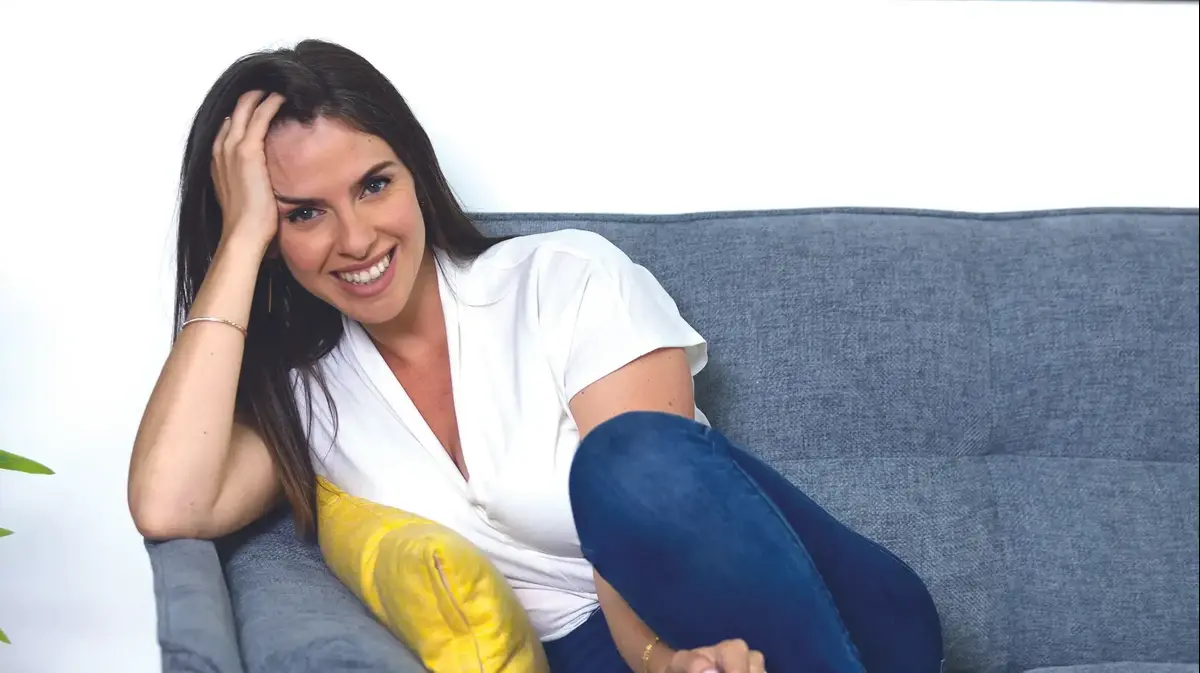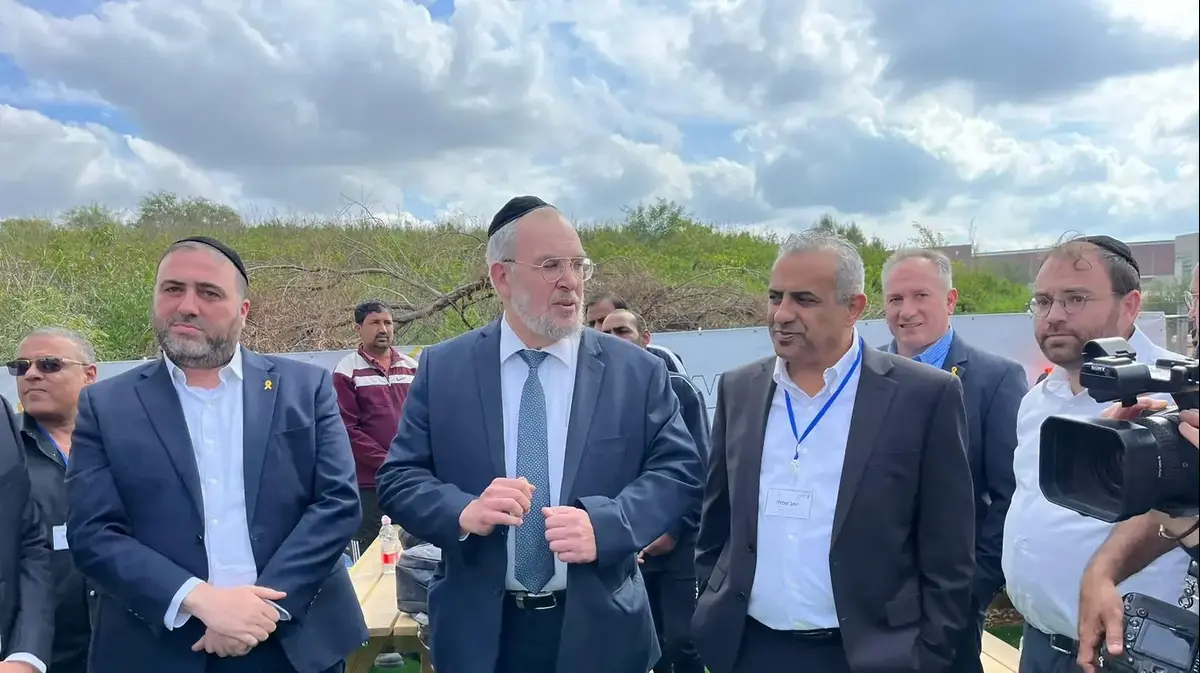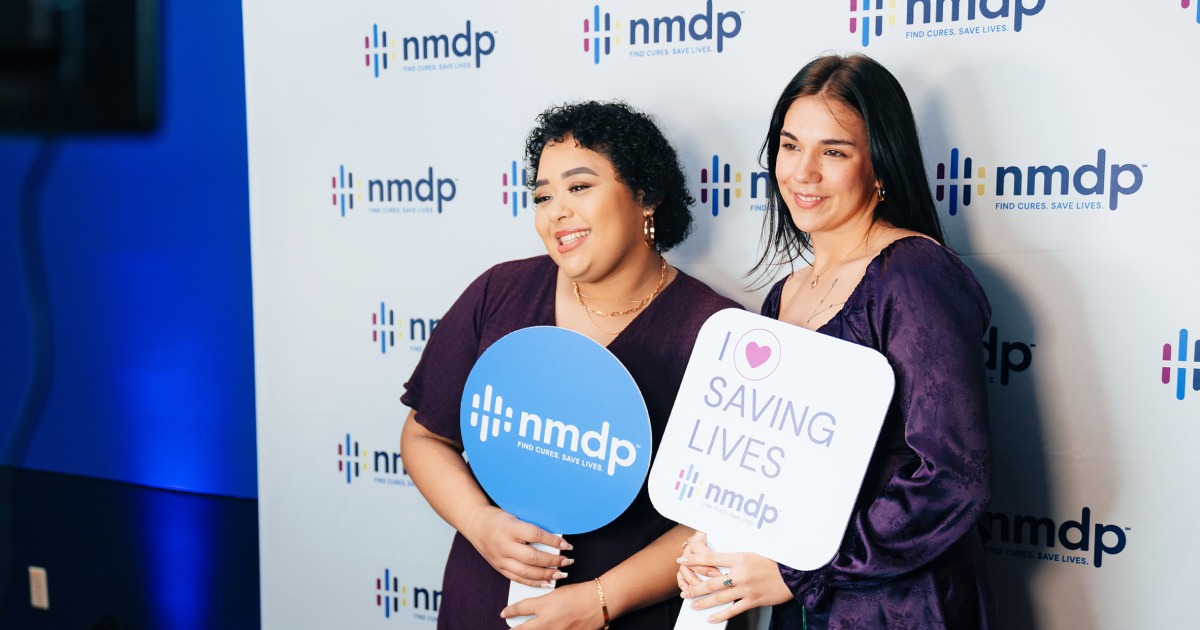When the US approved Cryoparam's drug Slinexor to treat blood cancer, Dr. Sharon Shaham did not believe it would be used on another front • Now Shaham's company has been approved for trials in Corona patients in 7 countries • "Our advantage is that we have already used the drug In thousands of patients ”• Exclusive
Dr. Sharon Shaham // Photo: Rick Friedman / Polaris Professional advice and photo design: Eyal Hirsch
"It was clear to me that no one would invest in Sharon from Raanana." Dr. Sharon Shaham This week, at the Cryofarm Laboratories in Boston on March 5, at 5 a.m., Dr. Sharon Shaham was standing on Golda Meir Boulevard in Jerusalem, near Ammunition Hill, with a large group of parents next to him. It was the end point for the 101st Battalion's berth in Paratroopers, including their eldest son, 21-year-old Amir.
Three days later, just before Israel's skyscraper began, Shamam boarded a plane back home, to Boston, and set out on an arduous journey: the quest to find a cure for Corona. Last month, the company co-founded Shaham, Caryopharm, received approval from the health authorities in Europe, the US and Israel for experimental treatments in a drug developed for hard corona patients. Trials are currently underway in dozens of hospitals in 7 countries around the world, including the US and Israel.
"We went through almost six weeks of recruiting, with very little sleep," says Shaham, 49, of her home in Newton, a Boston suburb where she has lived for the past 17 years. "We didn't think that in such a short period of time we would be able to reach a state-of-the-art clinical trial.
" When I returned from Israel, I launched a Wetsap group of about 15 people and the company's scientists and senior executives. We contacted doctors and doctors in hospitals we work with all over the world, and began to study the disease in depth. We worked around the clock. Virology is a new area for us, in the last decade we have focused on oncology.
"All the places answered us promptly. We received emails and phones on weekends, late at night. Doctors and doctors talked to us from the hospitals, with the masks on their faces. Explained things to us, thought with us, and returned quickly to the patients.
"While studying the disease, we contacted the health authorities in the US, Israel and Europe. From the time we finished building the drug trial protocol, the FDA (US Food and Drug Administration) approved it within eight days. Although eight days of ceaseless work, but effectively the record of all parties. Today, there are dozens of trials in the world to treat Corona, and the FDA recommends that we do one or the other, based on knowledge that is drained from all the studies that are underway at the same time. "
The great benefit of Shaham was that it worked on an existing Cryoparam drug, Slinxor, which was approved by the FDA about 10 months ago for the treatment of multiple myeloma - a violent blood cancer that damages bone marrow, bones, kidneys and the immune system. Now it is the same medicine for the treatment of corona, only at a different dose, much lower.
"There are not many existing drugs that are now treating them to Corona. Slinxor is a drug we know very much about, we have helped with thousands of patients. It acts on a specific protein in the human cell and inhibits or blocks it. "Both the cancer cell and the virus need this protein to replicate, thus controlling the body. Monkey studies have shown that the drug inhibits the production of viral proteins, and also slows the spread of virus from infected cells to healthy cells."
The Israeli Ministry of Health has authorized Cryoparm to conduct a clinical trial of the drug in non-respiratory patients. The trial will be conducted at Hadassah, Shiba, Sharon and Soroka hospitals and will include 230 patients.
"Our operations are global," explains Shaham. "All our research over the years is done in North America, Europe, Australia, Asia, and always in Israel. Because clinical studies outside North America are best conducted in the field, near hospitals and similar time zones, pharma companies Like us, we set up an operation in major European cities, so we decided that our system would be in Tel Aviv, and three years ago we established Cryoparm Israel.
"Not only because of Zionism, but also because the doctors and doctors in Israel are excellent, and the research infrastructure of the hospitals and universities is excellent. I love working with Israel. The smart, curious Israelis give quick feedback and interest. They will always tell me what the problems are, so I will speak Exactly where there is difficulty, effective conduct at a very high level.
"I hope we will learn more about pharma companies in how smart it is to work in Israel. I do not say this as an Israeli, but because the work culture in Israel is similar to that in the US. Devotion to work, absolute loyalty to the organization. In our company, many Israelis are employed, at least one-tenth of the company and one-third of management. At times of crisis or pressure, like the one we are experiencing now, you feel the significance of the Israeli spirit in society. "
The lock and key
6 AM, Boston Time, is the time when Sham has asked us to start our virtual meeting and is already ready for a work day after the first morning coffee. Sitting beside her on the living room couch is her partner, Dr. Michael Kaufman (57), who serves as the company's CEO. On his lap is his laptop, his eyes fixed on the screen.
"Hello, hello," he exclaims with a smile, waving his hand, and then sincerely read. Beyond the large glass doors behind Shaham's back you can see the courtyard of the house, with garden furniture, a slide, a swing and a colorful plastic playhouse that the freezing weather has not been used for months. On the horizon is a landscape that is all drowned. On the branches of trees and shrubs you can see a few blocks of ice left over from the last snow.
Shaham turns the computer camera around and gives me a short tour of the spacious living room. The fire in the fireplace is still burning, and the kitchen on the other side of the living room is empty because the children, Healy (4 1/2) and Dor (18), are still sleeping in their beds on the second floor. In one corner of the living room is the dog Jackson, and next to the kitchen, on the dark hardwood floor, stands a black wing piano.
"Michael is the one who plays, of course, as befits a perfect American Jewish boy," teases Shamah, her husband. "He fulfilled all of his mother's dreams. Both a pianist and a physician, as well as Zionist lovers of Israel, a member of the Executive Committee of the American Friends of the United States Organization." In (FIDF) ”.
She was born and raised in Raanana. Her father, Moshe Rashal, was a member of Egged. Her mother, Irish, worked as a librarian at Beit Berl's Midrash, and in recent years divides her life between Raanana and Newton. Her younger sister Tammy (47) is a hematologic doctor who lives in Ramat Hasharon and serves as a consultant for Cryoparm in Israel.
"As a child, I had clear elements of nerds," says Sharon, "I was good at school and I always loved chemistry. Marie Curie is my childhood hero. I read about her in a book we had at home about the greatest inventors, and she became an admiration and inspiration model for me. , Who always knew he wanted to develop cures for incurable diseases, as a teenager, I was more interested in line 29 from the Raanana center to the Sharon beach in Herzliya.
In the army, Sharon served as a naval personnel officer, and immediately after her release, at the rank of lieutenant, began her undergraduate degree in chemistry at Tel Aviv University. From there, she went on to a direct track for a PhD in Computational Biophysics, and at the same time completed her Master of Business Administration, also at Tel Aviv University.
Her two doctoral dissertations are significant figures in her track record. "Professor Zvi Naor taught me biochemistry in the second year of my bachelor's degree and adopted me as his nurturer. It was one of the most significant intersections of my life, and he was quite disappointed that I did not go on to academia and became a professor, because he dreamed of inheriting his university lab.
"Deer is the greatest mentor I've ever had, second only to Michael, of course. He's the person who pushed me to do things that I was sure were impossible. Michael also pushes me to do what seems unreasonable and unattainable to me. It's a source without a few professional arguments, But also one of the key reasons why our integration works well. "
In 2000, she completed her PhD, and on the basis of her dissertation, she co-founded the Israeli biomedical company Paradix, together with Prof. Oren Becker, her second supervisor in the dissertation. "My PhD was about building computational 3D models for a certain family of proteins, who didn't know how they were built," explains Shaham. "The idea is like a lock and key. If I know exactly how the lock, that is, the protein, can fit the key - the drug Exactly, at Paradix, they developed drugs that work on these proteins, and the same technology has also been used by me on cryoparam, matching oncology. "
In 2002, Predix's executive committee decided to move the company's operations to the US to develop and expand its operations. To that end, it was decided to recruit a CEO, and one of the candidates who came for the interviews was Michael Kaufman. His interview, incidentally, took place in Cyprus ("because at that time all they heard in the news about Israel was an intifada, terrorist attacks and bus explosions," he says), and Shaham was not present. She was then married to her middle-aged friend, Adir, and together they raised their sons Amir and Dor.
Kaufman was elected CEO of Paradix, and Shamham and her family moved to Newton. She served as product manager, then vice president and head of drug development at the company, which changed its name to Epics. But unlike Paradix, which was considered a great promise, Epix's path did not work, and it She closed in 2008. Meanwhile, Shaham divorced her husband and co-founded Cryofarm with Kaufman.
In 2013, they married. About two years later, their daughter, Healy, was born. "Michael used to be the CEO of the company, and only after years became my partner," laughs Shaham. "Atit lives down the street. We are such a modern family, and the relationship remains excellent. His spouse has a 21-year-old from her previous marriage, and when Healy wakes up, she will go to her, who will do a babysitting for her. "
"Nobody believed in us"
Kaufman grew up in Pennsylvania. He earned a bachelor's degree in biochemistry at Amherst College in Massachusetts, followed by a full scholarship at John Hopkins School of Medicine in Baltimore. He did his internship and internal rheumatology in Boston hospitals.
"I was part of great programs, all of them at Harvard Medical School, so it took me a while to venture into job interviews and make the transition to the industry," Kaufman says. "At the end, I listened to myself. I knew that helping one patient at a time, taking prescriptions for drugs and talking at all A day about side effects is important, but not for me.
"I wanted to do something big, or at least try to do something big, and to me, that meant developing a cure. The period was the mid-90s, with a lot of scientific achievements in molecular biology, especially Cambridge, as medicine continued to advance linearly."
In 1995, he became a medical consultant for Biogen, one of the biopharmaceuticals giants, and later was a senior of the biopharmaceutical company Millennium, where he co-developed drug therapy for myeloma. "At that time, the cancer had died within two years, a horrendous death from the injury. Bones. Nobody believed in our treatment, but the big breakthroughs come from ideas that go beyond the surprising and surprising. That's how history is made. "
Later he moved to Protolex, as chief medical officer, where he led the development of another drug for myeloma. "For the two drugs approved for the treatment of myeloma, Velcade and Kiprolis, a more than $ 1 billion market, but above all, these are milestones in dealing with the cancer."
To the Israeli paradox company, established on the basis of Shaham's doctoral dissertation, came "because I was bored and wanted to manage. I learned what the company was doing and realized it was brilliant. Not just inventing the chemical, or drug, that will lower a certain protein level accurately. Sharon has developed a way "New and unique in inventing high-protein proteins that lower their levels, without affecting other proteins. Its technology has connected science to medicine ingeniously."
His first visit to Israel was in 2003, as CEO of Paradix. "I was 40, no longer a child, but a Jew and a Zionist, which was very exciting. The first thing I noticed is the security at the airport. In the US, security is built on one whole show, which is bullshit. In Israel, people ask a few questions, look at you, know exactly what to look for, without crap, honestly and to the point. I really like it. It exists in our Israeli workers as well. "
"We were on a recent fuel vapor"
The protein at Cryoparam's development center is called Expo1, "and from its name you can understand that its main function is export," says Shachem. "It's like a train that carries proteins from the cell nucleus out and inside. In the past they worked for many years and thought that if they inhibited it, the cell would die. It has to be very accurate, preventing it from getting out of the cell nucleus other proteins that are very important for dealing with cancer and viruses. "
In 2009, Shaham began to look for investors for Cryoparm. "It was clear to me that no one would invest in Sharon from Raanana. Despite the experience we gained, I knew I had to go into the club. I had to find a Harvard professor, from MIT and their like, who would believe in our development and go with us.
"I put together a list of ten leading researchers, sat for lunch at the Starbucks branch in Newton, sent e-mails to everyone, and when I got home, a positive response was awaiting me from Harvard professor Ron DeFino, who is a member of us, and currently serves as MD of MD Anderson.
"After a few months, DePino met Michael and me with Salva Sumulokowski, a wealthy, loving Israelite Jew and above all - a smart and good man, who sought to benefit and promote meaningful things through the money he accumulated from energy investments. We came to him with an invested and impressive presentation, but he said immediately "I don't want to hear about science. If Ron DeFino believes you, I can't disagree."
"He asked us some smart, simple business questions, and at the end he said, 'I don't want a business model. I want that while I go to the services, think how much money you need and tell me the amount. When he returned from the services, we asked for $ 20 million. And we got it.
' Along the way, in 2010. Somolukowski became a wonderful partner, en route to studying biology and medicine. He took a big gamble, but earned a lot. "
Kaufman: "A lot. In total, he invested about $ 30 million in the company, and since then the profits were at least six times that. Not everything was that simple and idyllic: We went through periods of manpower reduction, the company's existential struggle, the money was over, the shares plummeted, Very embarrassing. The FDA's approval of the drug for myeloma was a nightmare. For a long time they said they wanted to wait. I guess they had information from other trials, and we were left hanging in the air.
"In February 2019, an FDA committee convened and informed us that the drug was being suspended again. We were already on the latest fuel vapor economically."
Sharon bursts into his words. When he participates in the conversation, she speaks English. "The day after the commission, we convened the entire company in Newton's offices and video calls from the rest of the world, including Israel, to announce that this was the case and to think about what to do. It took drastic steps. We already recruited salespeople, and we did not know if there would be any cure for selling.
"Then a scene from a Hollywood movie, or maybe a Turkish movie, happened. The head of the company's regulatory system, which is the FDA liaison, opened an update, and after two minutes, her phone rang. The FDA senior was on the line, and she left the room to talk to him. When she returned, she said: "Forget everything. They wanted to meet with us again, saying we won't make a decision in the meantime."
"After a few days, we were notified that by July a final decision would be made. On July 3, 2019, on the eve of American Independence Day, we were approved for the drug."
Michael: "For us, all the fireworks shot were in our honor."
Run ideas together
I ask them about the joint work as a married couple, and they compliment each other. "Sharon is the inventor, she is the pioneer," says Michael. "I, as a physician, think practically about the drug that can be developed. Slinxor was her idea, and he was the smartest idea I've ever heard. It's simple and ingenious."
Sharon: "Michael is one of the people who has contributed the most to treating myeloma worldwide. Our drug is the third drug he has been able to bring to the FDA for the treatment of the disease. It's crazy. I wouldn't want to go through this journey with anyone else."
What is the division of roles between you?
“He’s the CEO, I’m the president and the chief scientist, but we are partners. Big ideas we run with each other. Michael handles more investors, trade, sales, and I in research and development.
"There are dinners that are unpleasant, I admit. The kids can tell a lot about that. Dinners include arguments about our models. I come up with an idea, and Michael kills it. Or I want to kill my idea, and Michael insists on keeping it alive. We don't always Agree, and what to do about having a family and having dinner, so the work will never stop at the door.You are dealing with severely ill patients, stress is inherent.
"We always work a lot, not just during the days of Corona. I get up early in the morning and always late for someone or something, because Europe and Israel are already in the middle of the day.
"Strangely, especially in the crazy days we went through, with the serious challenge we received for ourselves and the company, the marital and family unit strengthened. We live in the delusional movie, but good for us. However, it is perfectly clear to me that if I told him now that he could fly alone for a ride Business to New York, within a minute and a half he was with a suitcase packed at the door. "
How have the children been coping with the situation in the past month?
"Healy is pleased. I work a lot from home, and only occasionally go to the company's offices. She sees me more, and she does it well. Her main criticism is on my attire. She gets up every morning, gets into her princess clothes, and I don't like that I Don't get out of your pajamas.
"Generation is absolutely disgraceful, because he finished 12th and in the mornings he has complete freedom. I suppose we will hear from him in the afternoon. "
Amir, her eldest son, immigrated to Israel two years ago, with a nucleus of her back. The first year was devoted to a pre-military preparatory in quarry." His father and I told him that Israel is not just the beach in the summer, The country before deciding to enlist. So he recognized, decided to enlist, and is currently considering continuing to study in Israel after liberation. Dor intends to follow him, study in pre-military preparations, and see what's next.
"Two weeks ago, Amir went on vacation from the army, after a month. We have family in the country, but we did not know how difficult it is to be a combat soldier when you have no father and mother. We, as Israelis, had no choice but to enlist, it was not a question. Staying in the country, serving in the IDF, and doing it without doubt. Amazing boy.
"I come to Israel once every two months to be with him, and also to them and Michael. The three of us were at the beret receiving ceremony, which was not exciting. All the young paratroopers were such sweet and exciting, the state of Israel at the height of its beauty."
"Feeling at home"
There are 360 employees at Cryoparm, and Israelis feel well. "We have a kind of battle spirit, teamwork with faith, without the fear of breaking conventions and going against the odds," says Ran Frankel, 52, a former Tel Aviv native who moved to the U.S. with his wife and two sons when he joined the company about six years ago, and serves as vice president. Senior and Chief Development Officer, his eldest daughter, Hadar (20), also serves as a lone soldier, a sabotage instructor in combat engineering.
"Like Sharon, I too remained very Israeli, and we both feel at home in this society. All the DNA is Israeli. It's all built on a personal example, and when you're sure you've reached a peak - you're accelerating even more.
"What is very noticeable is that for us, in the clinical trials we are conducting around the world, these are not" experimenters. "These are patients, people, families that come into our lives. It took us a long time to change the way Americans look and put their personal point of view in. That's part of our madness. Sharon and I yell at each other, "You're crazy," "You're not normal," it's all with great passion to achieve the goal. "
The Israeli headquarters of the company, which has about 20 employees, is managed by Anat Haas Mizrahi, who co-founded Cryoparm in 2009. Mizrahi says that the trial at Slinxor for Corona patients received the Ministry of Health's approval within three weeks. "In addition, Israel was the first country outside the United States to apply for approval of the drug as a treatment for multiple myeloma patients, and it will be submitted to the Health Basket Committee next year."
The next target for Sharon and Michael is the development of drug treatments for other cancers. The company has already applied for slinxor registration as a treatment for lymphoma (lymph node cancer), and is in advanced stages of registering the drug for endometrial cancer.
"And maybe go back to work on Alzheimer's medicine, as I did right after the PhD," says Sharon. "It's important for me to expand our social work as a commercial company and to engage in clean energy. Back to university is always a good option, too."
And to Israel?
"I really want to return to Israel at some point. I want Hili to be Israeli. The boys are more Israeli than American, but it's best to define them as 'hybrids', which is not a simple challenge. Either way, it's an identity crisis."
"It was always clear to them that I had no intention of being assimilated into American society. Although I am married to an American, I fought for my Israeli identity and theirs. They attended public schools, but were active in Boy Scouts, surrounded by Israelis and spoke Hebrew. Its Jewish-Israeli.
"I miss home. Israel is missing me now more than ever. Of course, the fact that Amir in Israel makes it more difficult for me, and after a generation joins, it will only be harder. Michael is ready to try to live in Israel, and I know that will happen.
"In the last few days, I've been thinking about being so beautiful here, in Newton. I live in a beautiful place, I don't miss anything, but if there's one place in the entire world that I want to be in now, it's the Sea of Galilee. The fact that the Sea of Galilee excites me makes no sense. To me I can't be in the country and see with my own eyes the high level. Go explain it to the Americans. "

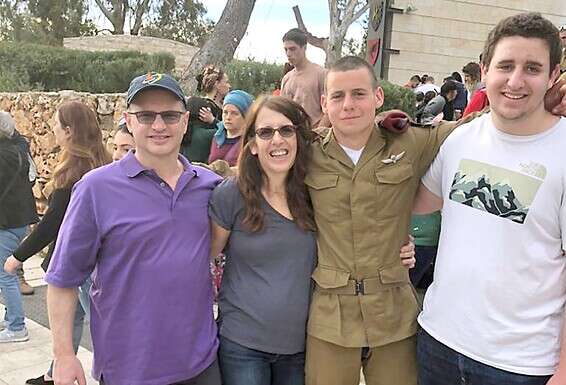
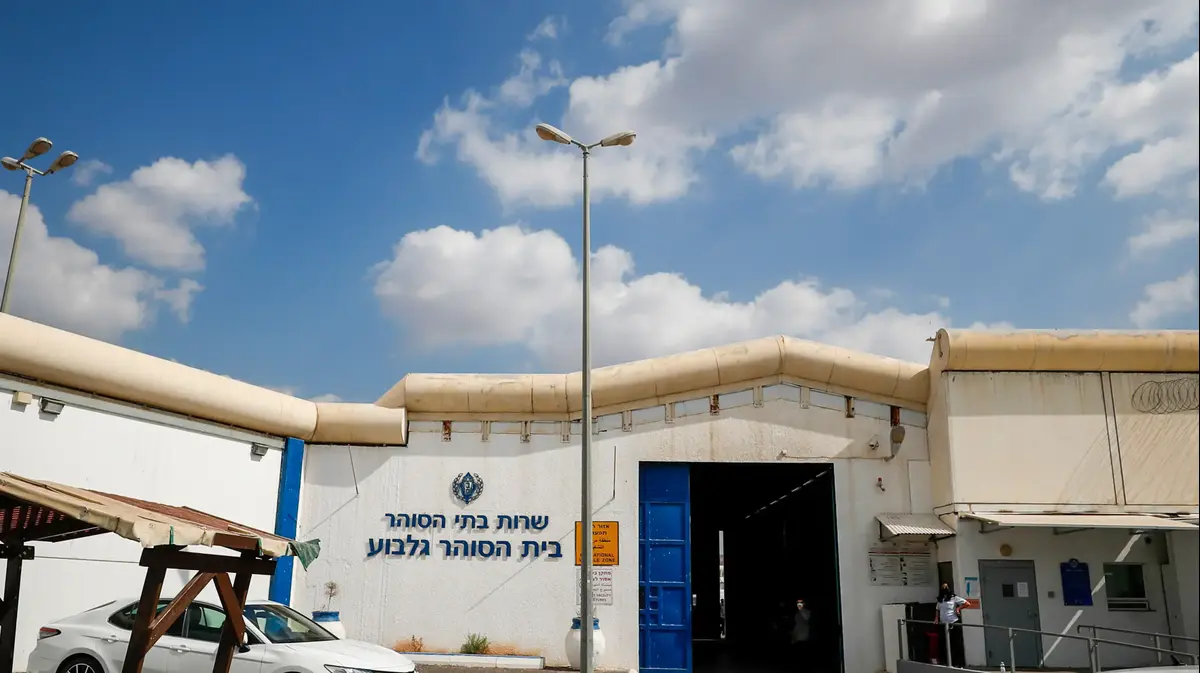

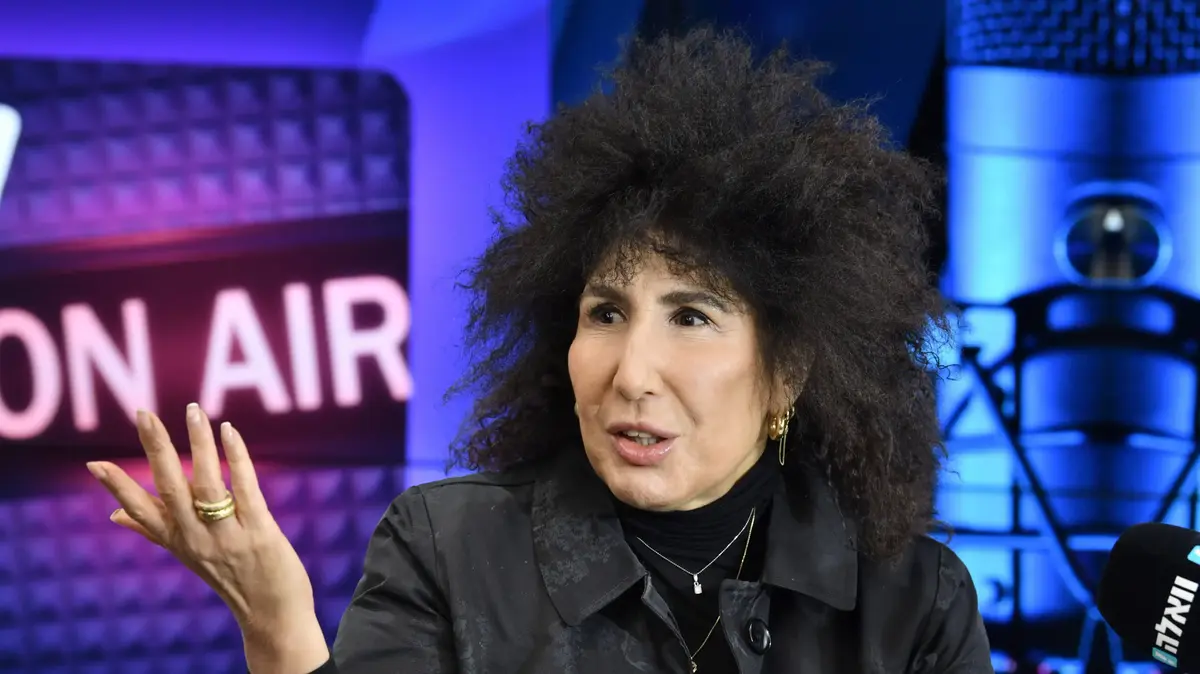
/cloudfront-eu-central-1.images.arcpublishing.com/prisa/34VDHFBST5DFLDSXFEQEZRVRBI.jpg)
